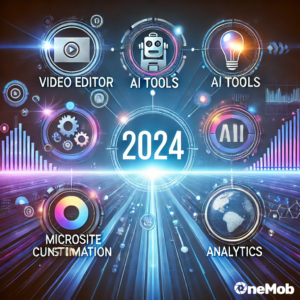Company culture is top of mind for most CEOs today. Culture contributes significantly to productivity, as companies with happy employees consistently outperform their competition. It also contributes to lower turnover, which in turn increases profits significantly. Ultimately, a positive company culture drives profitability and growth.
One way to enhance your company culture is through video engagement. As a recent McKinsey study found, CEOs must lead the discussion of transformation, vision, and culture to effectively bring change to their organization. You and your top-level staff cannot physically be everywhere at once, but you can use video to engage meaningfully with employees. Here are three ways video engagement can enhance your company culture.
1. Engage employees directly.
In 2015, 45 percent of employees in the United States worked from home. With so much of the workforce being remote, it is difficult to develop a cohesive culture with strong corporate values, transparency, and a commitment to employees’ personal growth. Video, however, can bridge the gap and increase cohesiveness.
Specifically, personalized videos directly from management can help create cohesiveness in impactful ways. Employees respond best to change management when you, the CEO, are leading the discussion. Videos allow you to interface with your employees directly and to quickly disseminate your vision, news, best practices, and product information. And employees can view your video at their convenience on their time. It doesn’t matter if your company is one office or many; everyone is receiving the same instruction from the same source.
2. Show your appreciation.
According to a 2016 survey, 82 percent of employed Americans feel that their contributions go unnoticed, and 40 percent would work harder if they were being recognized. Expressing appreciation for your employees is a low-cost, high-yield endeavor. According to a 2003 Gallup Poll, recognition improves employee satisfaction and productivity, lowers turnover, and increases customer loyalty. Video is one way to get this done and seen by as many people as possible.
The size and spread of your company likely make it impossible to meet with every single employee and thank them one on one, but video allows you to praise in a personal way. You can have all of the benefits of a companywide meeting with none of the costs or hurdles.
Remember, your employees have to be reminded that you’re not a robot just as much as your customers and prospects do. They need to know that you and the company at large care for them and value their contributions. The personal touch of a video gets that message across perfectly.
3. Provide access.
When employees feel left out of the loop, company culture suffers. According to a 2014 survey by the American Psychological Association, only about half of all employees in the US believe their employer is open with them, and nearly 1 in 4 employees don’t trust their employer. However, a 2013 Harvard Business Review survey found that 70 percent of employees feel more engaged when management keeps them informed and up to date on strategy.
Ideally, you’d like to keep your employees informed and engaged by inviting them to “sit in” on executive meetings, customer meetings, conferences, etc. But that’s not realistic for a variety of reasons such as time, coordination, costs, exposure to confidential information, etc. Through personal videos, however, you can share snippets of these meetings with your employees, providing access to scenarios or instances that they would not otherwise be exposed to. This exposure builds trust and results in employees being more vested in the company’s success.
Also, these videos provide clarified context as well. As Sam Hodges, co-founder and US managing director of funding circle, explains, “When you’re offering a clear view across departments, the sheer volume of information or industry slang can be intimidating and often debilitating for peers in different functions. It’s critical to provide context, commentary, and clarity around what this information actually means for different people.”
Used correctly, videos can be a medium of cultural change. As organizational psychologist Laura Hamill states, “Culture is not a Ping-Pong table. Culture is not having margaritas on Friday. That’s just surface level. What matters a lot more is what happens when people go back to their desk, when they have a meeting with their manager and interact with the leaders of the company. It’s day-to-day interactions, how people feel they are treated, and how they’re valued.” Video can help your employees feel valued, supported, and connected.
Please try to connect with your employees more effectively and work together to enhance your company’s culture. Start by sending them a quick and engaging video.
Originally posted on the Salesforce blog.







